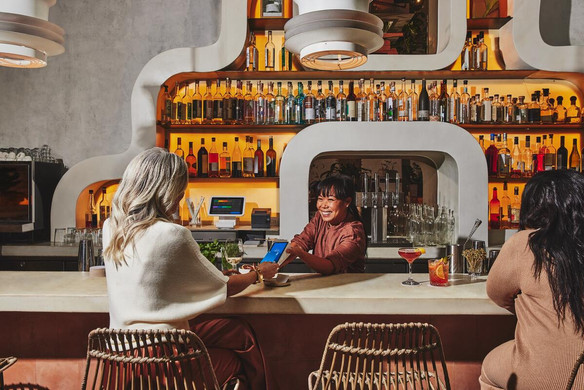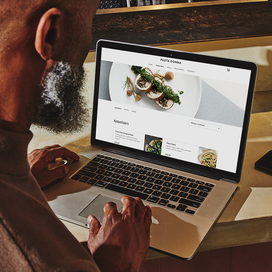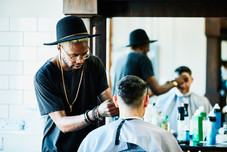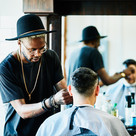Table of contents
This article is for educational purposes and does not constitute legal or tax advice. For specific advice applicable to your business, please contact a professional.
If you’re planning to start a business that sells alcohol in Oklahoma, you’ll need to obtain the applicable liquor license(s). Licenses are issued by the Oklahoma Alcoholic Beverage Laws Enforcement (ABLE) Commission, and it’s important to understand the requirements to get them. And, of course, you need to answer one of the most important questions: How much is a liquor license in Oklahoma?
Getting a liquor license is usually worth the hassle, even if you own a restaurant. Selling alcoholic beverages can help you attract more customers to your restaurant and increase your revenue. Restaurant profit margins for drinks can be as high as 80%, based on pour cost; for bars the margins can be up to 200%.
Here’s a guide to help you understand the requirements for getting a liquor license in Oklahoma.
Steps to apply for a liquor license in Oklahoma
1. Determine the type of license you need
Licenses differ based on the type of alcohol you intend to sell and where you want to sell them — on-premises or off-premises. You can serve beer, wine, spirits, all, or a combination of the three.
The most common licenses for restaurants, bars, and grocery stores are:
- Retail license – You can obtain a retail beer/wine license or a retail spirits license. If your retail store is incorporated, you will also need to provide a Certificate of Incorporation.
- Low point beer license – The state of Oklahoma issues a low point beer license for the sale of any beverage that contains more than one-half of one percent (1/2 of 1%) alcohol by volume, and not more than three and two-tenths percent (3.2%) alcohol by weight. Before you apply for this license type, check that your property is properly zoned for the sale of low-point beer.
- Employee license – An employee license is required for any employee selling or serving alcoholic beverages in any place where such beverages are sold, mixed, or served. Servers must be at least 18 years of age to obtain a license that allows them to sell beer and wine. For mixed beverages, servers must be 21 years of age.
2. Fill out the application form
Once you’ve determined the license type you need, fill out the general application form. You may also need to fill out an immigration affidavit form.
The supporting documentation required depends on the license type. A Sales Tax Permit from the Oklahoma Tax Commission (OTC) is usually required for all applications. If you plan to sell mixed beverages, you may also need a Mixed Beverage Tax Permit. Other tax permits may also be required, depending on your county.
You may need additional documentation, depending on your business and license type. For example, if you’re serving food on premises, you’ll need a food service license. A food establishment inspection will also be conducted as part of the process.
MORE: How to choose the best POS system for your business
3. Obtain a certificate of compliance
A certificate of compliance is required for all Oklahoma liquor license applications. This document is used to determine your compliance with Oklahoma City codes relating to zoning, fire, safety, and health. Supporting documentation required includes:
- A copy of your lease agreement (unless you own the property)
- Site plans
- Floor plans
- Notice of intent
4. Pay the appropriate fees
Fees vary depending on the type of alcohol and business type. The full list can be accessed here.
Licenses for spirits are generally more expensive than those for beer and wine. The initial fee for an on-premise beer and wine license is $500, while a license for retail spirits is $1,005.
5. Submit your application
Once you’ve completed all forms and paid the necessary fees, the final step is to submit your application — online, via post, or in person. Approval times vary depending on the license type and if you’ve provided all the necessary supporting documents.
MORE: Everything you need to start a restaurant
How much does it cost to get a liquor license in Oklahoma?
The price of an Oklahoma liquor license can vary, depending on what you need. Here’s a fast breakdown of the most common types of alcohol licenses in Oklahoma and their estimated cost as of 2024:
|
License |
Cost |
|
Brewer |
$1,250 |
|
Distiller |
$3,125 |
|
Winemaker |
$625 |
|
Wine and spirits wholesaler |
$3,000 |
|
Beer distributor |
$750 |
|
Retail spirits |
$905 |
|
Mixed beverage |
$1,005 ($905 renewal) |
|
On premise beer and wine |
$500 ($450 renewal) |
|
Retail beer |
$500 |
|
Retail wine |
$1,000 |
|
Special event |
$55 |
|
Public event |
$1,005 annual, $255 one-time |
|
Winemaker or small brewer self-distribution |
$750 |
|
Brewpub |
$1,005 |
|
Brewpub self-distribution |
$750 |
FAQ
How much is a liquor license in Oklahoma?
Before getting your alcohol license in Oklahoma, there are a lot of considerations to keep in mind. Here are some frequently asked questions about getting your liquor license before you start your application.
What are the blue laws in Oklahoma?
Blue laws, also known as “Sunday legislation,” are regulations that prohibit the sale of alcohol on Sundays. In Oklahoma it is illegal in most counties to sell packaged liquor for consumption off premises on Sundays, Thanksgiving, and Christmas.
How much is a one-day liquor license in Oklahoma?
For a special event, a one-time liquor license in Oklahoma costs $255 dollars.
How long does it take to get an Oklahoma liquor license?
Once your application is filled out and approved, it usually takes about 30 days for the Oklahoma Alcohol Beverage Laws Enforcement (ABLE) Commission to issue you a license to sell alcohol in Oklahoma.
Can you give alcohol away for free in Oklahoma?
With a Complimentary Beverage License, you can give away up to two drinks free of charge for on-premises consumption. If you have a different type of license from the ABLE Commission, you are not eligible for a Complimentary Beverage License.
Can food trucks sell alcohol in Oklahoma?
While Oklahoma food trucks can get a temporary liquor license for special events, they do not qualify for a full liquor license.
![]()












